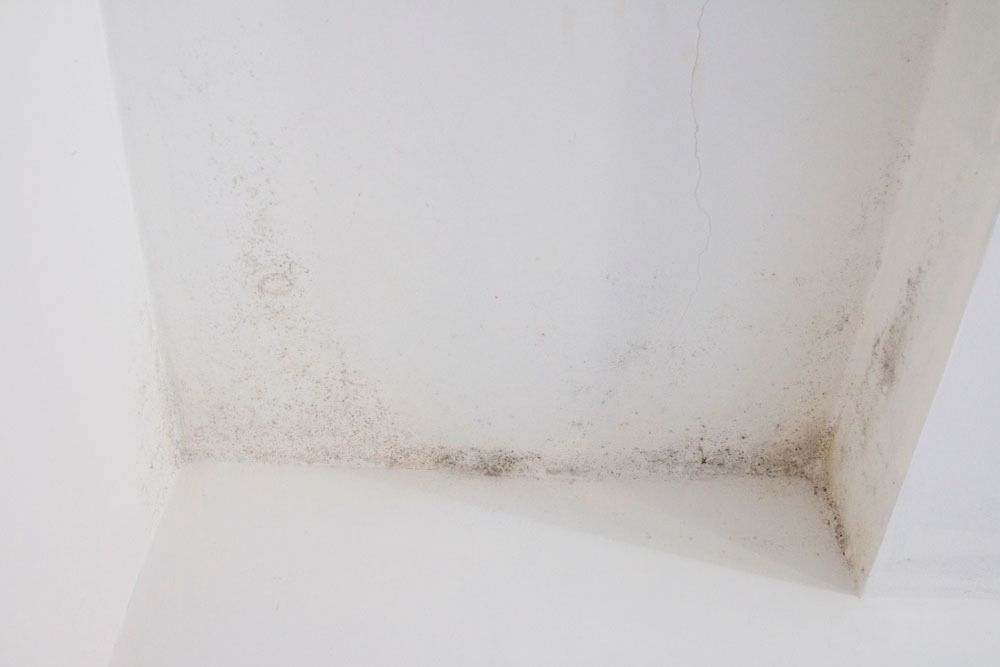What Does Mould Smell Like?

CONTENTS
- What is mould?
- Does mould smell?
- How to get rid of the mould smell
- The best ways to prevent mould
- Book your mould remediation
There are lots of signs that mould is growing in your home, from dark patches and stains appearing on surfaces to residents and visitors suffering from persistent cold symptoms. But one of the most common signs you should be aware of is an earthy, musty smell in your home.
As soon as you notice a mould smell in your house, you must have the mould causing it removed by professionals immediately.
At ICE Cleaning, we offer quick, thorough mould remediation services. Our technicians have been accredited by a range of organisations including Dewpoint Professional, BICSc, and SafeContractor, and are stationed across the UK. In an emergency, they can be on site within a matter of hours.
Keep reading to find out what mould smells like and what to do when it starts growing in your home.
What is mould?
Mould is a type of fungus that thrives in damp and humid conditions. It reproduces by releasing spores into the air which then settle on surfaces where they can grow. Mould is found everywhere - both indoors and outdoors - and in small amounts is natural and safe to be exposed to.
Inside your home, mould tends to grow in areas that are damp or have high humidity levels. It can usually be found in places like bathrooms, kitchens, basements, and attics.
The growth of mould not only damages your property but also poses health risks. Prolonged exposure may lead to an allergic reaction and respiratory issues, like infections or asthma attacks. Some produce toxic substances which can trigger more serious health problems, such as sick building syndrome, too.
Does mould smell?
Mould releases microbial volatile organic compounds (MVOCs). These are gases produced by the metabolic processes of fungi which smell strong and unpleasant.
The scent is often described as musty or earthy but it can vary depending on the type of mould, what it's growing on, moisture levels, and the growth stage of the mould. A black mould smell, for example, is known for being very strong and musty. Mould can also smell like:
- Fermenting alcohol
- Rotting wood
- Sweaty or wet clothes
- Rotten meat
How to get rid of the mould smell
To remove the odour from your home, you need to eliminate the mould that is causing it. First, you should identify the source of the smell. Look around your property for signs of mould and see where the odour is the strongest. Mould can grow in hidden areas like behind walls or under carpets, so you must be thorough to ensure you don't miss any.
Then, bring in professional cleaners for mould remediation. They will have the expert knowledge and specialist equipment required to safely remove all traces of the mould from your home, including airborne mould.
Attempting to clean the mould yourself might seem simple and cost-effective, but you probably will not be able to eliminate all of it and any left behind could grow back soon after cleaning. The wrong cleaning method, like scrubbing the mould, could encourage the spores to spread further around your home, leading to a more serious problem, as well.
Specialist cleaners, like our technicians, can identify all the mould growth in your home - including in hard to see areas - and give you peace of mind your home is safe again. They can even diagnose the specific cause of the mould and advise on how to stop it from returning to your home.
The best ways to prevent mould
There are lots of practical steps you can take to keep mould at bay. One of the most effective measures is ventilating your home. By ensuring a regular flow of fresh air through your property, you can keep moisture levels down, reducing the likelihood of mould growth.
Avoiding excess humidity is crucial, too. Using dehumidifiers or extractor fans in high-humidity areas like bathrooms and kitchens will help control this issue. It’s also important not to dry clothes indoors as this significantly increases indoor humidity.
The importance of regular cleaning cannot be overstated when preventing mould growth, either. Regularly wipe down surfaces where condensation tends to build up, and clean surfaces to get rid of dust and dirt which mould can feed off.
Mould often thrives in cold spots around windows, on the ceiling, and on walls as condensation forms on them. Make sure that all rooms are adequately heated and consider installing thermal lining paper on cold walls for more insulation.
Inspect your property for leaks frequently, as well, and bring in professionals to fix them and dry the affected area as soon as possible. You can find out more about how to eliminate mould permanently in this blog.
Book your mould remediation
Our technicians can quickly lower the spore count in your property to a safe level and significantly improve its air quality. We also offer damp odour removal services to get rid of any lingering, musty smells in your home.
You can find out more about our mould removal services by calling 0208 066 0360 or sending an email to enquiries@icecleaning.co.uk. We operate day and night, 365 days a year, including bank holidays.

Speak with me today,
I’m here to help
By asking you a few questions either via phone or email I can immediately provide a realistic estimation of the cost.
You’re in good company. We’ve cleaned for the following commercial clients… View all

Why choose us?
- Cater to a wide variety of cleaning situations
- Nationwide coverage, available 24/7
- Cater to commercial and domestic clients
- Free survey provided prior to quotation
- Emergency response team
- Offer a bespoke service designed to suit all your needs
- All technicians hold professional health and safety qualifications, including BICSc, IOSH, Dewpoint Professional & Safe Contractor
We’re fully accredited
We place best practise, professional expertise and health and safety at the core of our business. We’re fully compliant with all legal obligations. You can view a list of our accreditations below, or visit our Health & Safety page for more information.











-RGB-small.1707319151.jpg)




















